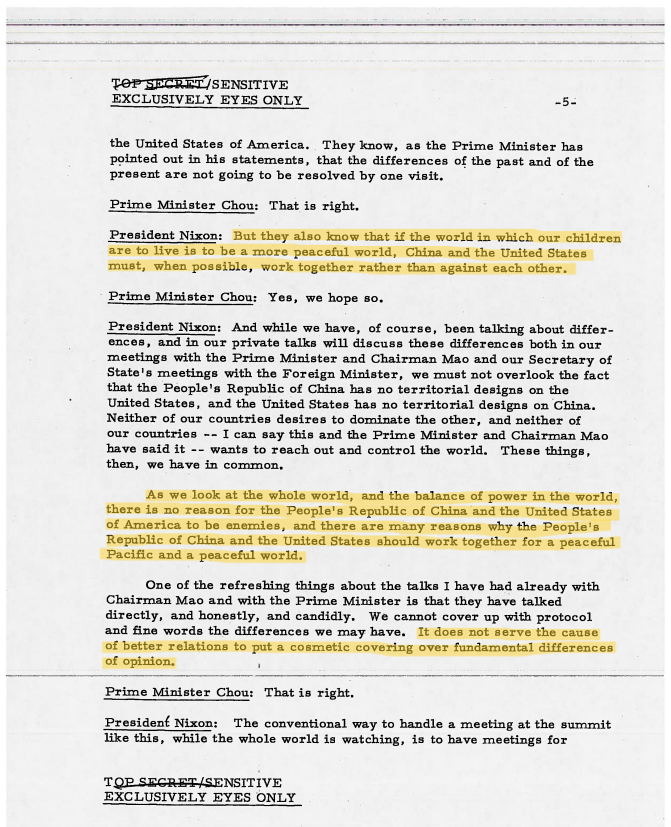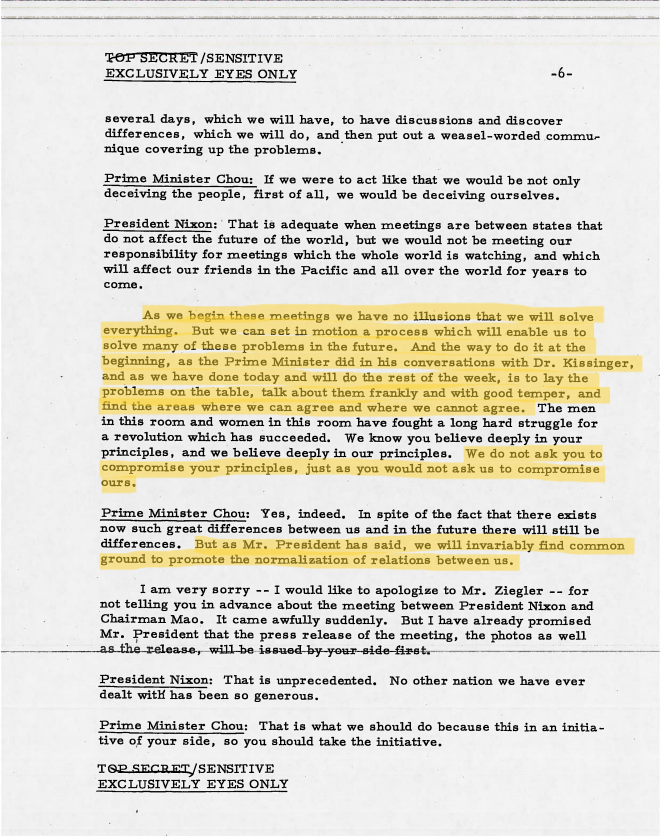Richard Nixon’s Visit to China: The Turning Point in Sino-American Relations that Forever Reshaped the Geopolitical Landscape of the World
On July 15, 1971, President Richard Nixon announced his trip to China.
“President Nixon Announces Trip to China.” Richard Nixon Presidential Library, Youtube
This statement showed to the world that the U.S recognized Sino-American relations to be valuable for world peace.
"I would simply say in conclusion that, if there was a postscript that I hope, might be written with regard to this trip, it would be the words on the plack which was left on the moon by our first astronauts when they landed there; "We came in peace, for all mankind".
-Richard Nixon speaking on his trip to China
"Richard Nixon Speech on China." Youtube, Richard Nixon Presidential Library

[The New York Times, July 16, 1971, Pg 1]
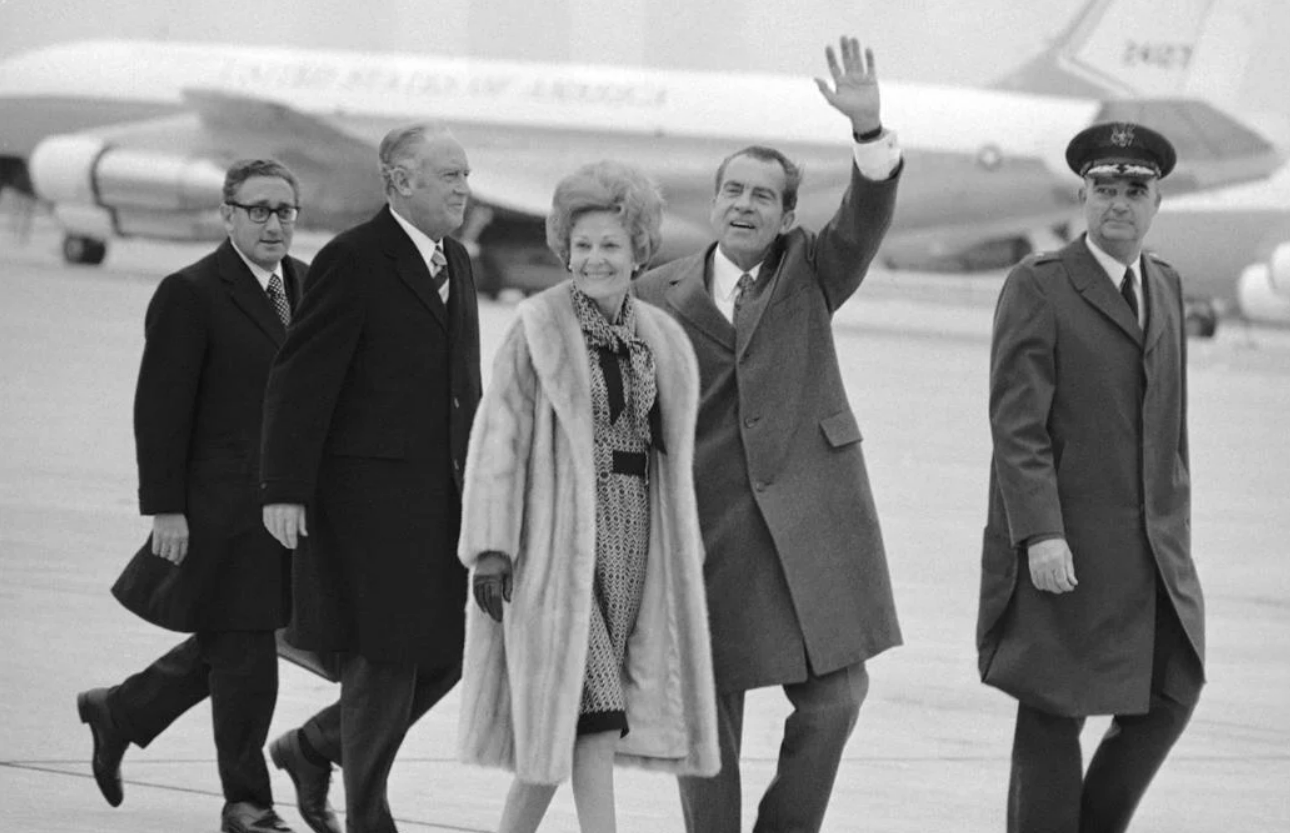
"President Nixon waves to those gathered at Andrews Air Force Base near in Washington on Feb. 17, 1972 to see him off on his historic trip to China." Associated Press Photos
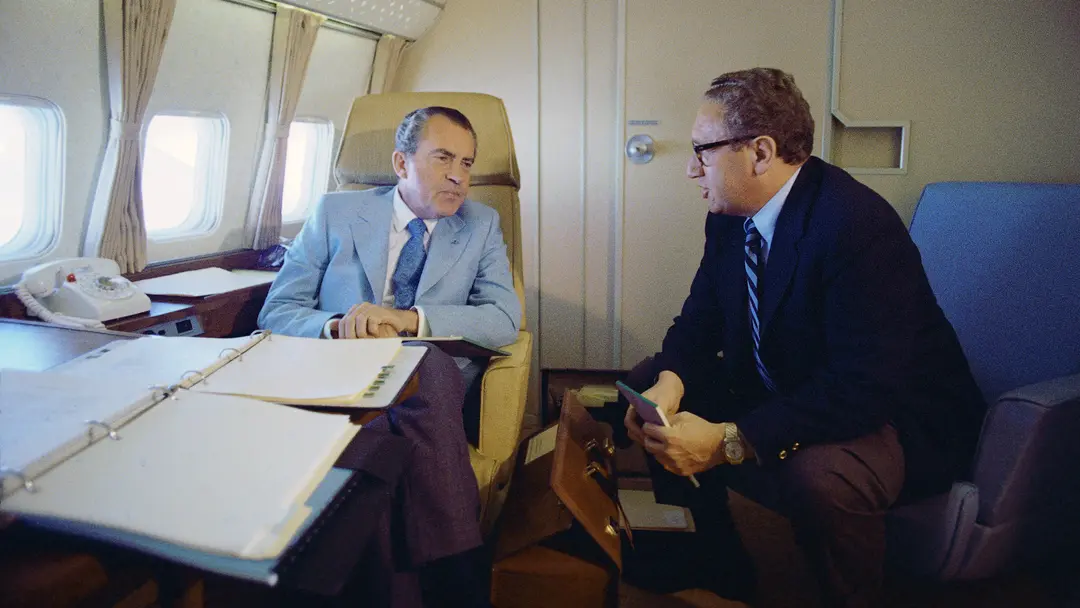
“President Nixon meets with his National Security Advisor Henry Kissinger, En Route To China, 1972.” HUM Images / Universal Image Group / Getty Images
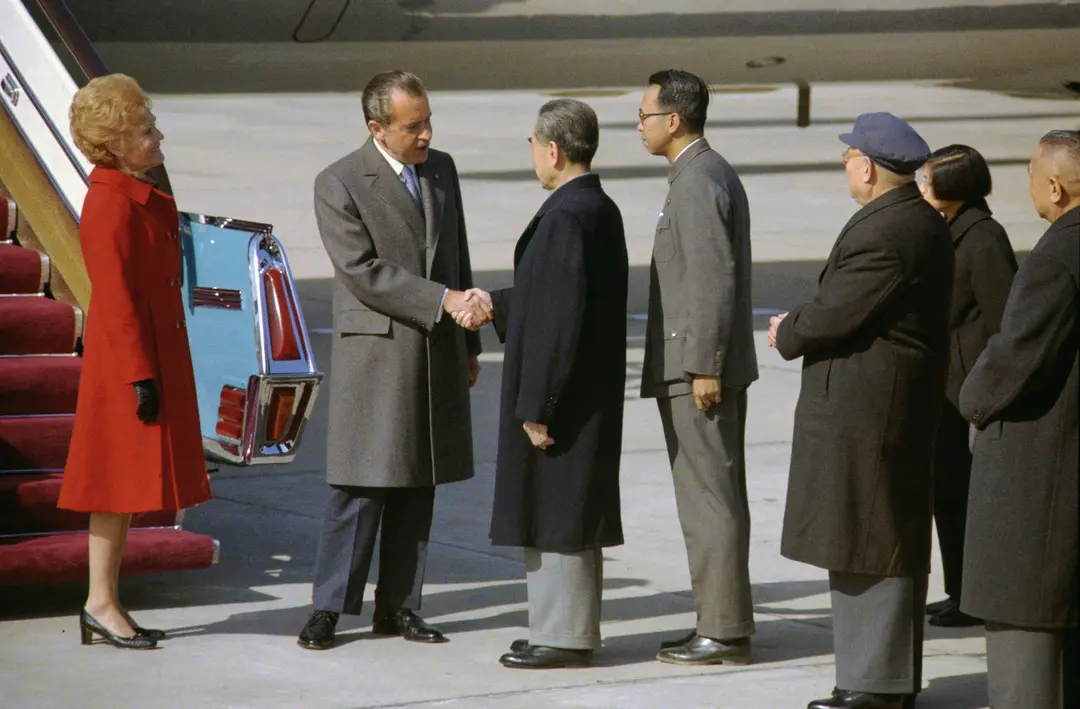
"President Nixon Shaking Hands With Premier Chou Enlai at the foot of the Air Force one stair ramp, while First Lady Pat Nixon and Chinese Officials Stand Nearby, February 21, 1972." Getty Images
Nixon hoped this trip would create a new beginning for Chinese-American relations.
“I knew that Zhou had been deeply insulted by Foster Dulles’s refusal to shake hands with him. When I reached the bottom of the steps, therefore, I made a point of extending my hand as I walked toward him. When our hands met, one era ended, and another began.”
-Richard Nixon
"President Richard Nixon Shaking Hands with Chairman Mao Tse-tung" White House Photo Office Collection
“Nixon Talked about China on the Great Wall in 1972.” Richard Nixon Foundation, Youtube
“Both men were aware of the historic significance of what they were doing, and they were both showmen in their own way.”
-David Roos, Journalist
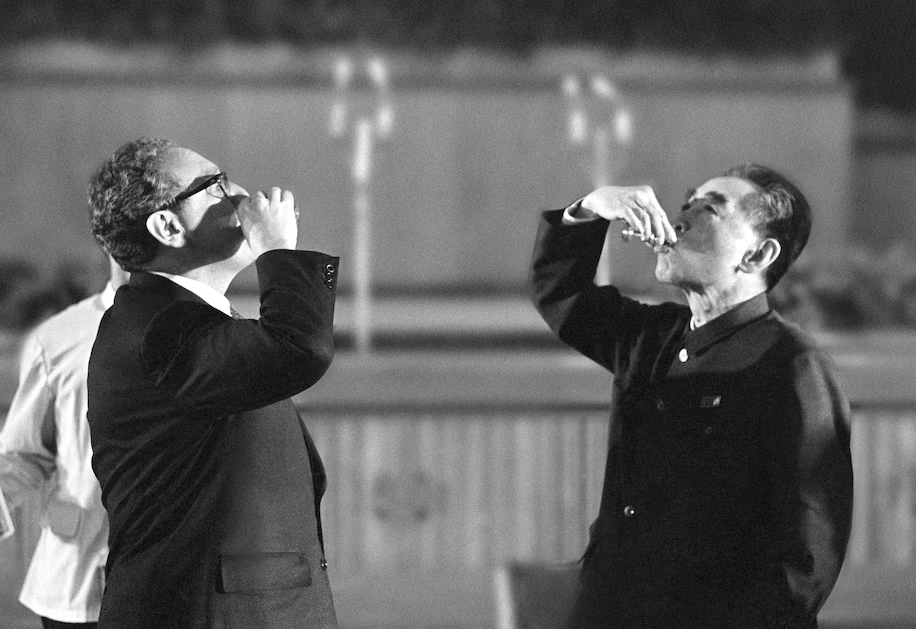
"Toasting the thaw: Secretary of State Henry A. Kissinger and Premier Zhou Enlai at a state banquet in Beijing." HWG/AP Photos
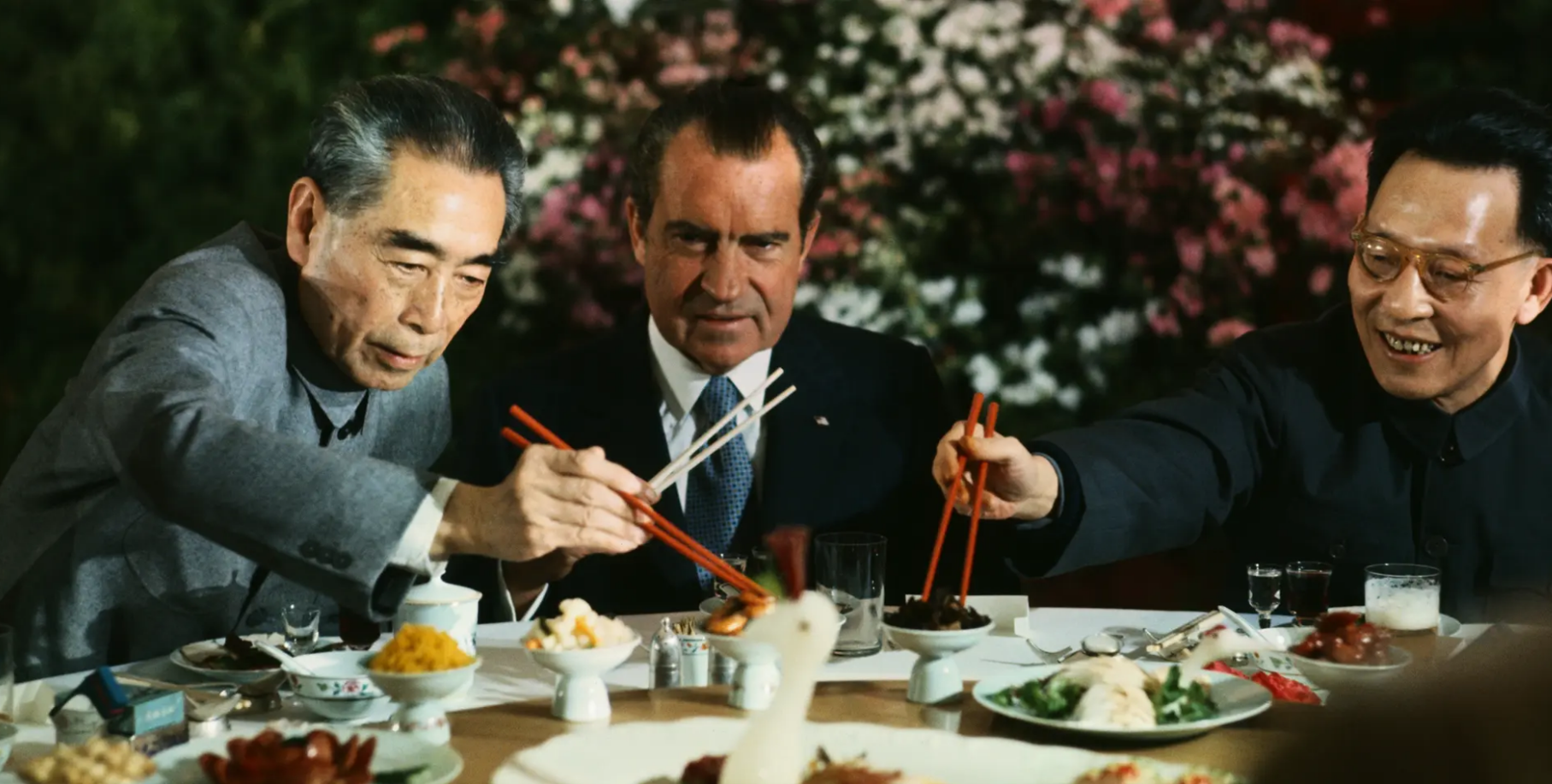
"Chinese Premier Zhou Enlai, Richard Nixon and Shanghai Communist Party leader Chang Chun-chiao attend a farewell banquet for the US president at the end of his 1972 visit to China." Bettmann Archive/Getty Images
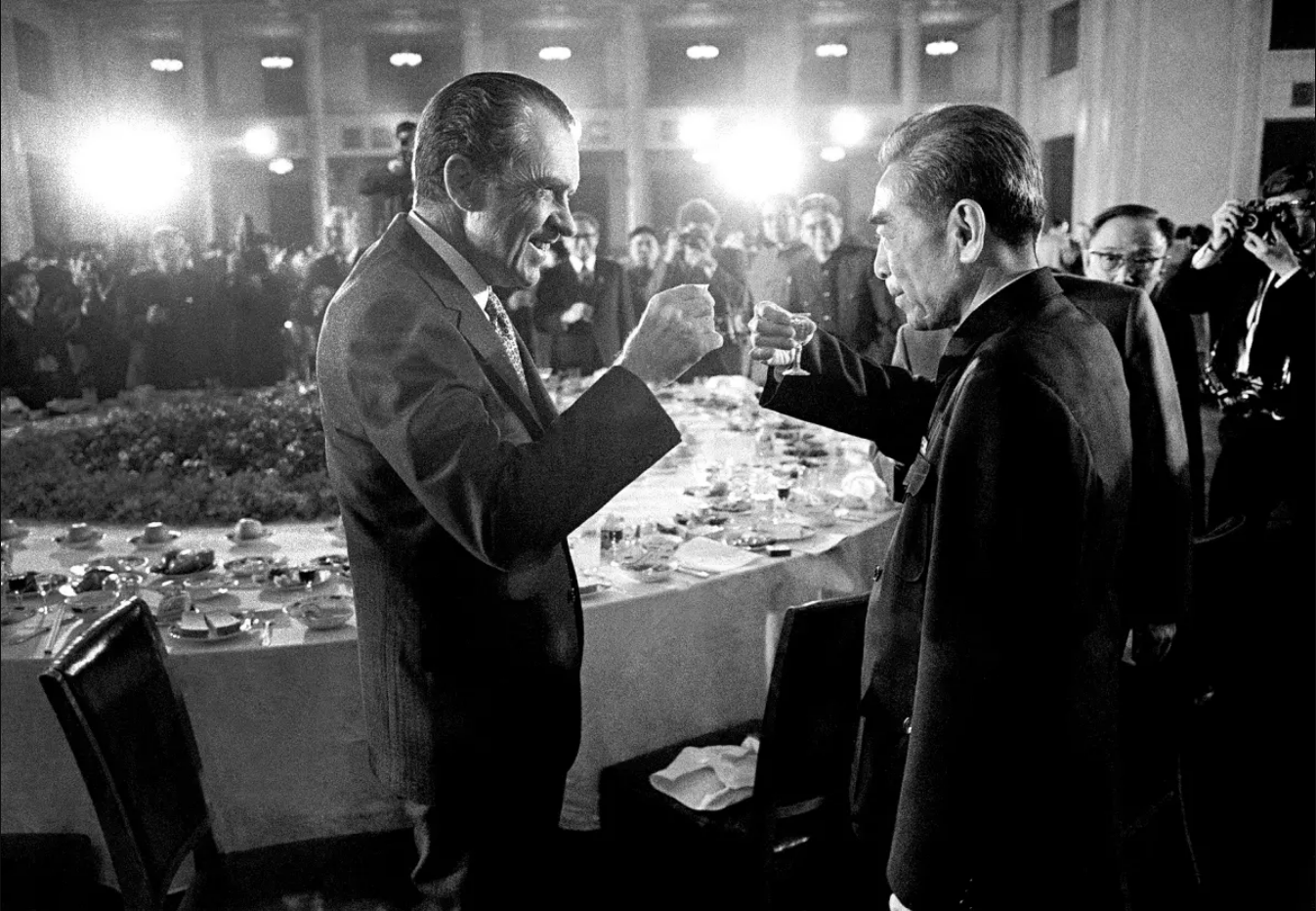
"President Richard Nixon (USA) toasts Zhou Enlai the Chinese Prime Minister during a state banquet in Beijing in 1972." Universal History Archive/Getty Images
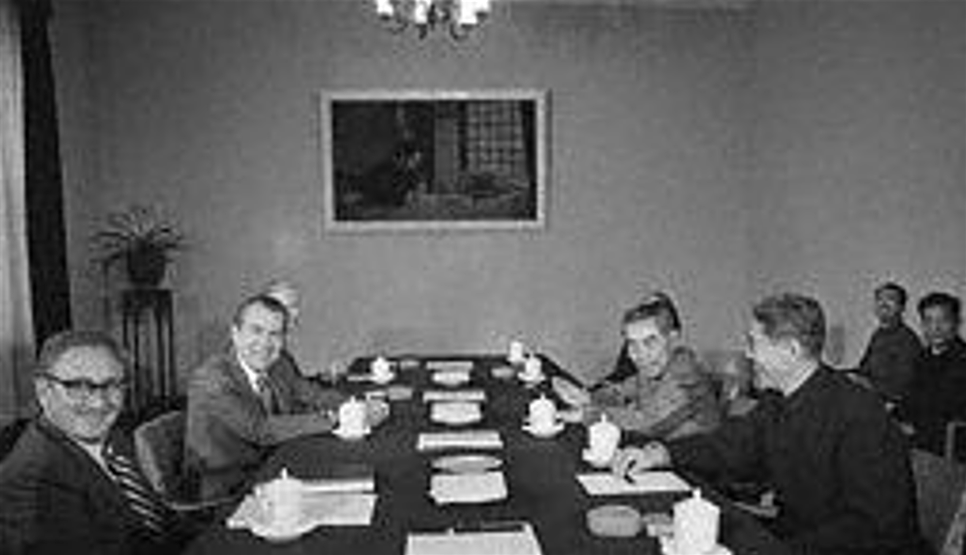
"Special Envoy Henry Kissinger, President Richard Nixon, Premier Zhou Enlai, and others at table, Beijing, 23 February 1972", Taiwan Documents
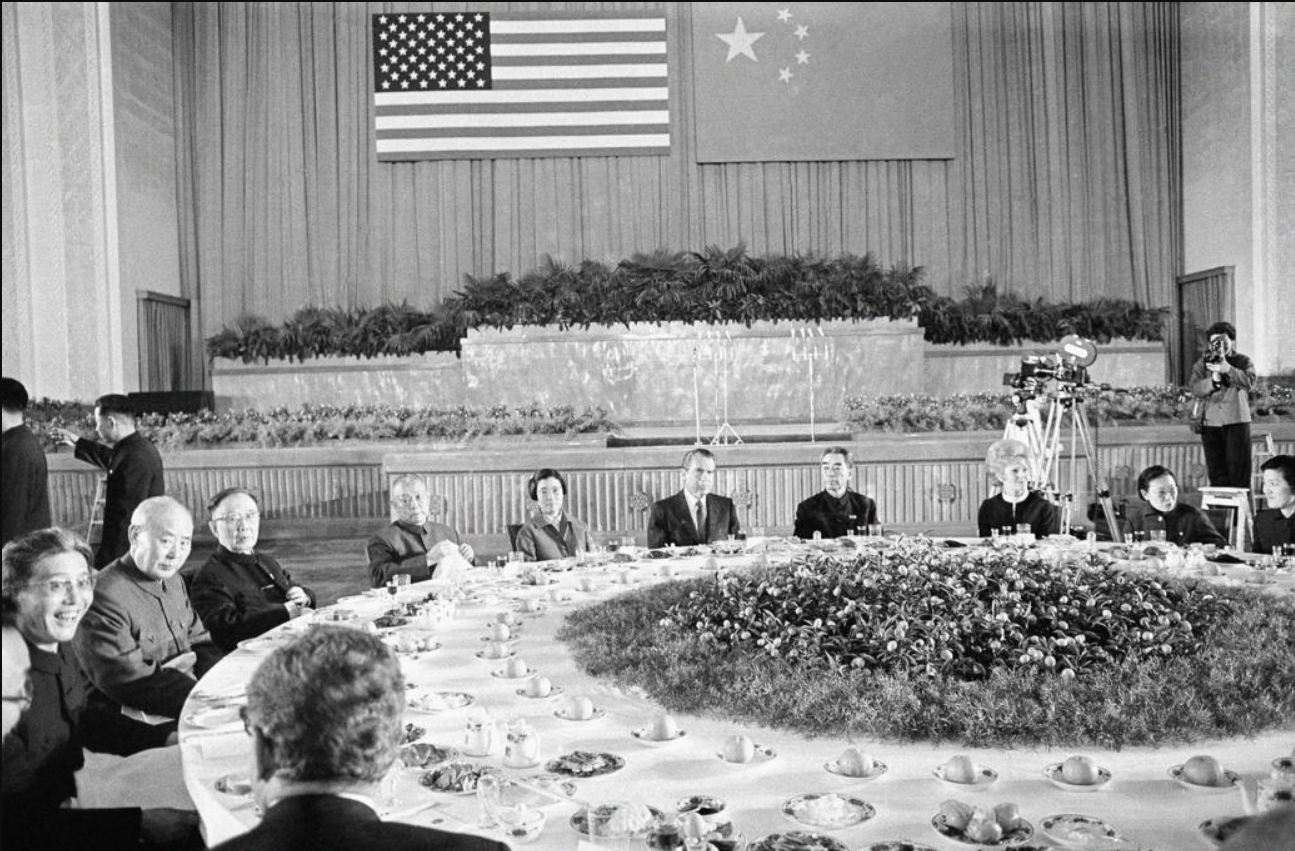
"A huge table, decorated with food, faces President Richard and first lady Pat Nixon and China’s Premier Zhou Enlai, far side of table, at state dinner in Peking on Feb. 21, 1972 to climax the first day of Nixon’s visit to the People’s Republic of China." AP Photo/Bill Achatz
“While our two countries will continue to have differences, it is clear from Dr. Kissinger’s talks with you and Prime Minister Chou Enlai that we increasingly share common views about the world situation. We take great satisfaction in the progress of our dialogue and the specific steps that are now being taken to accelerate the normalization of our relations.”
-President Richard Nixon in his letter to Mao Zedong after Kissinger’s first trip, 1973
The following negotiations changed the course of Sino-American history. With relationships established, further expansions of trade, ideas, and alliances could move forward.
“Memorandum for the President's File Discussion with P.M Chou Enlai, February 21, 22, 23, 24, 25, 26, 28, 1972”, Richard Nixon Library
“On this trip in February 1973, the flood gates opened privately and publicly for the reasons stated. The Chinese leaders are among the very few in the world with a global and longer term perspective—and it now parallels ours in many important respects. In such areas as the Soviet Union, Europe, South Asia and even Japan we have similar outlooks. In others, like Indochina and Korea, we each back our allies but share an interest in independent states and relaxed tensions. And on Taiwan we have reached a clear modus vivendi—on our part, continued, concrete evolution toward full relations with all its implications; and on their part, patience and a pragmatism reflected most vividly in the coming side-by-side presence of a GNP Embassy and a PRC Liaison Office. On the bilateral plane, it is full speed ahead on trade and exchanges. As for public relations, the Chinese have long since singled out the USSR for attack and have shown increasing cordiality in their public contacts with us.”
-Henry Kissinger in his memorandum after the 1973 visit to China
Direct Aftermath
Nixon's trip absolutely dominated American and Chinese press, appearing in nearly every major American magazine and newspaper.
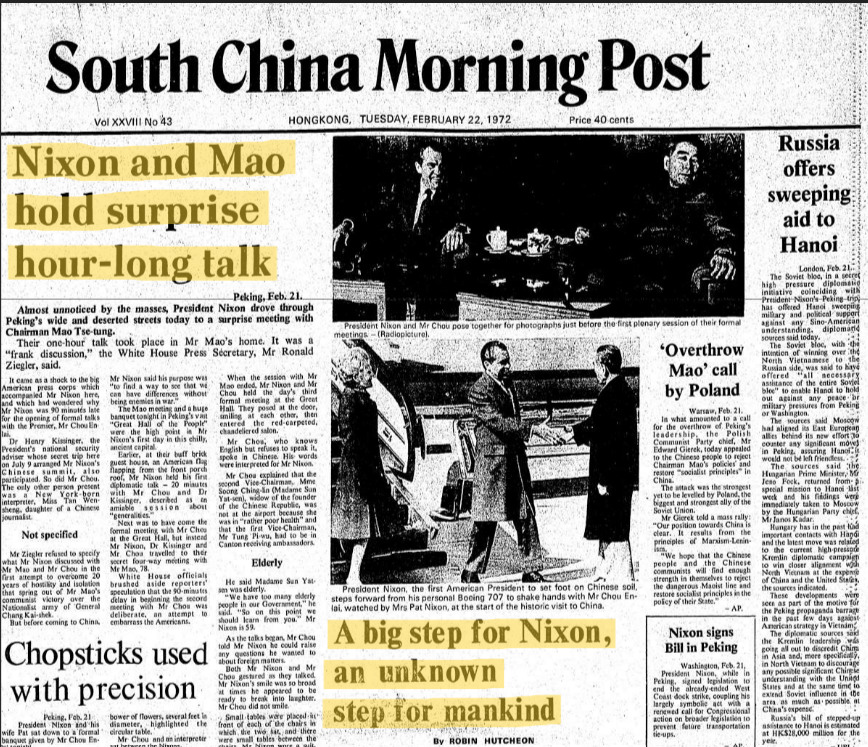
[South China Morning Post]
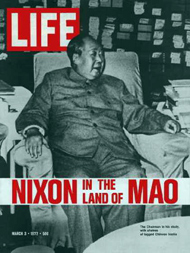
[Life Magazine, March 3, 1972]

[Time Magazine, March 6, 1972]
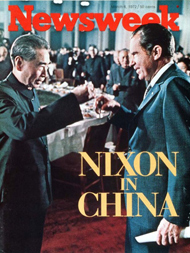
[Newsweek, March 6, 1972]
“Congressman John Schmitz of California charged me with ‘surrendering to international Communism’ by accepting the invitation. George Wallace… told reporters that he suspected the trip was actually a diversionary tactic to get people’s minds off ‘inflation and the high cost of pork chops’ …”
-Richard Nixon
Nixon's visit would lead to a multitude of diplomatic trips in the following years, resulting in official established ties in 1979.
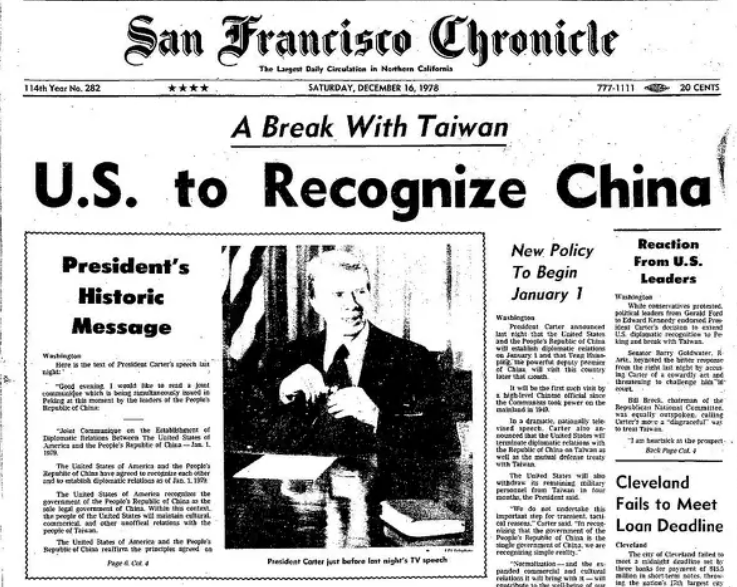
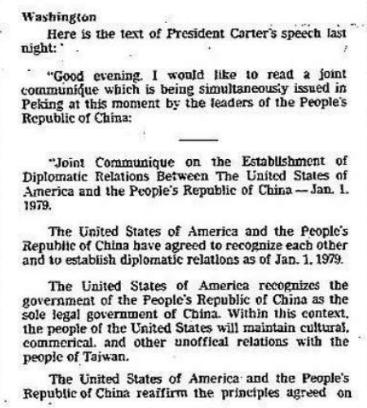
[The San Fransisco Chronicle, December 16, 1978]
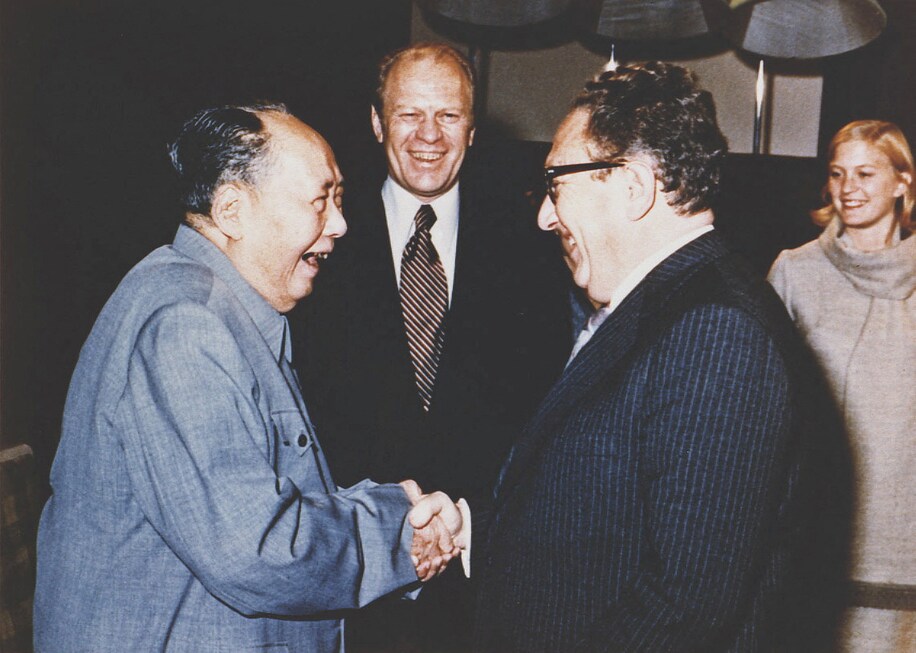
"President Gerald Ford and Daughter Susan Watch as Secretary of State Henry Kissinger Shakes Hands with Mao Tse-Tung." Wikimedia Commons
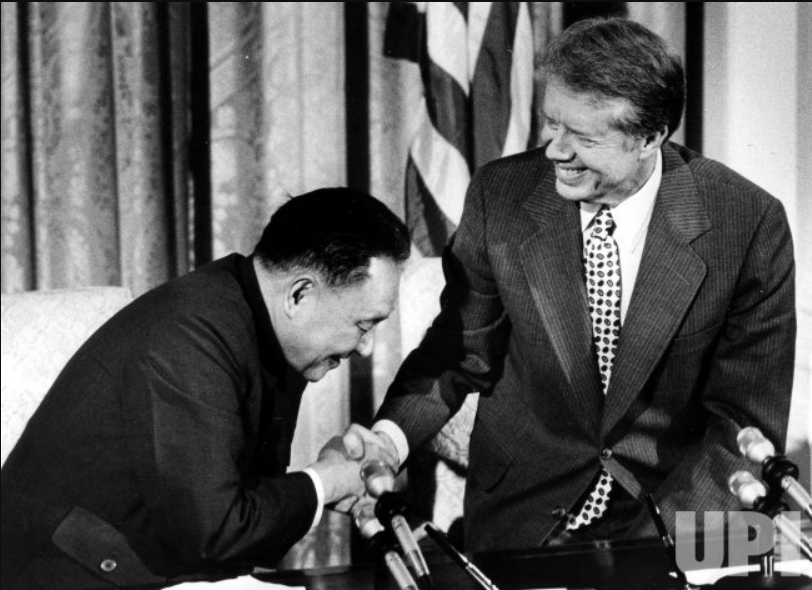
"Jimmy Carter and Deng Xiaoping shake hands following a ceremony at the White House." UPI Newspictures
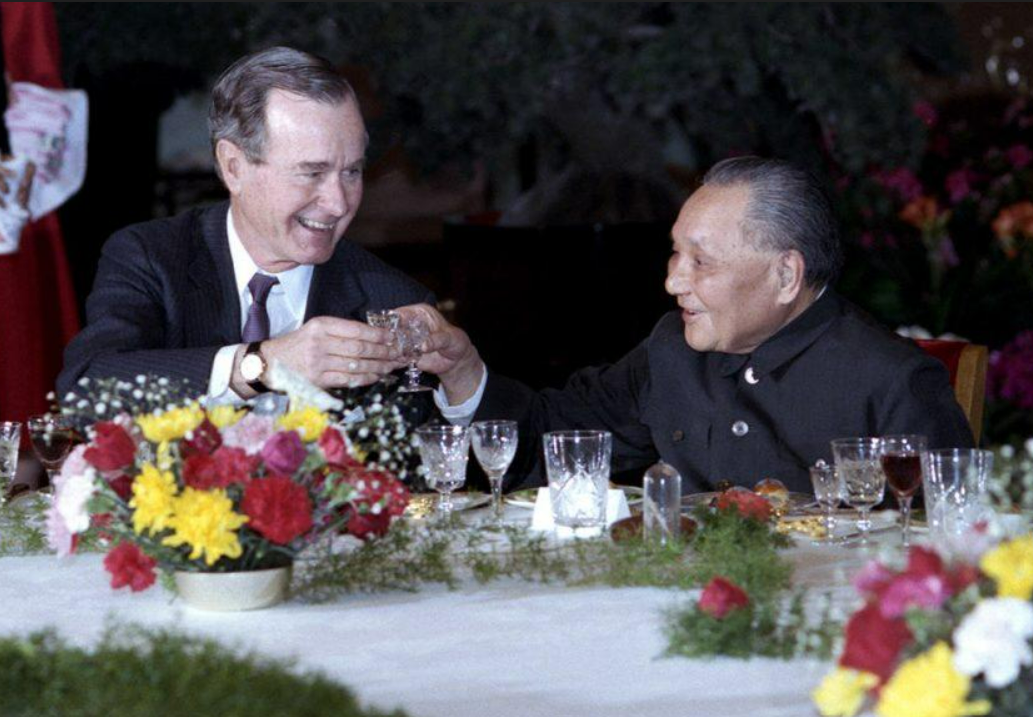
"President George H. W. Bush and Chairman Deng Xiaoping in Beijing, February 1989." George Bush Presidential Library and Museum
“I look forward to meeting with you later this year to discuss matters of common concern and interest. While, as you noted in your report to the Congress, fundamental differences remain between our two [Page 650]countries, I remain hopeful that through common efforts we can overcome these differences and advance the cause of normalizing Sino-American relations and thus fulfill the joint commitment expressed in the Shanghai Communiqué of 1972.”
-Letter From President Ford to Chinese Premier Zhou Enlai, 1975
